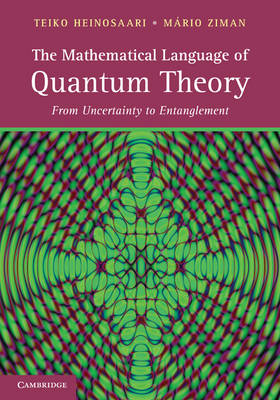 DeQHOST APVV-22-0570
DeQHOST APVV-22-0570
Title: Designing quantum higher order structures
Duration: 01/07/2023 - 30/06/2026
Principal Investigator: Mário Ziman
IPSAS Budget: 152 194 eur (total budget 200 000 eur)
Partners:
- Institute of Physics SAS (M. Ziman) - coordinator
- Mathematical Institute SAS (A. Jenčová)
Project Goals: The basis of today’s quantum technologies originates in quantum foundations research performed in the last century, which redefined the concept of information and set new theoretical limitations on information processing. This new information-theoretic perspective resulted in development of resource theories, general probabilistic theories and higher order quantum structures - the frameworks not only extending the quantum theory, but also enabling technologies beyond the quantum ones. DeQHOST will contribute to development of higher order concepts and methods, investigation of their mathematical frameworks, and optimizat ion of newly designed information processing protocols. The activities of the project are organized in three workpackages focused on higher order structures, resources and tasks, respectively. In particular, we plan to explore extensions and modification of the existing frameworks of higher order maps, in quantum theory and in the more general setting of operational theories, with the aim to unite their desirable features and maximize the scope of describable types of phenomena such as causal non-separability. Our goal is to understand how these frameworks can be utilized for optimization of tasks in future networks of quantum devices. One of the objectives will be the development of a higher order calculus for unitary channels. In our study of resources, we will concentrate on incompatibility of quantum instruments, channels and possible extensions to higher order maps. We will study memory effects as a resource for information processing and generalize a resource theoretic approach to quantum thermodynamics. Our findings will be applied to specific tasks as designing programmable quantum processors, discrimination of memory channels, comparison and convertibility of higher order maps and a study of complexity questions in the higher order setting.
Publications:
- Shintaro Minagawa, M. Hamed Mohammady, Kenta Sakai, Kohtaro Kato, Francesco Buscemi: Universal validity of the second law of information thermodynamics, npj Quantum Information 11, 18 (2025)
- Andreas Bluhm, Leevi Leppäjärvi, Ion Nechita: On the simulation of quantum multimeters, Quantum 9, 1608 (2025)
- Nidhin Sudarsanan Ragini, Sk Sazim: Higher-order incompatibility improves distinguishability of causal quantum networks, New Journal of Physics 26, 123003 (2024)
- Leevi Leppäjärvi, Ion Nechita, Ritabrata Sengupta: Generating random Gaussian states, J. Math. Phys. 65, 082201 (2024)
- Sanuja D. Mohanty, Ram N. Patro, Pradyut K. Biswal, Biswajit Pradhan, Sk Sazim, Trade-off between Bagging and Boosting for quantum separability-entanglement classification, Quantum Information Processing 23, 273 (2024)
- Teiko Heinosaari, Leevi Leppäjärvi, Martin Plávala: Encoding and decoding of information in general probabilistic theories, Int. J. Quantum Inf. 2440007 (2024),
- Isadora Veeren, Martin Plávala, Leevi Leppäjärvi, Roope Uola, Semi-device-independent certification of number of measurements, Phys. Rev. A 109, 062203 (2024)
- Nidhin Sudarsanan Ragini and Mário Ziman, Single-shot labeling of quantum observables, Phys. Rev. A 109, 052415 (2024)
- Teiko Heinosaari, Oskari Kerppo, Leevi Leppäjärvi, Martin Plávala: Simple Information Processing Tasks with Unbounded Quantum Advantage, Phys. Rev. A 109, 032627 (2024)
- Gautam Sharma, Sibasish Ghosh and Sk Sazim, Bloch sphere analog of qudits using Heisenberg-Weyl Operators, Physica Scripta 99, 045105 (2024)
- Natália S. Móller, Bruna Sahdo, Nelson Yokomizo, Gravitational quantum switch on a superposition of spherical shells, Quantum 8, 1248 (2024) [arXiv:2306.10984]
- Leevi Leppäjärvi, Michal Sedlák, Incompatibility of quantum instruments, Quantum 8, 1246 (2024)


